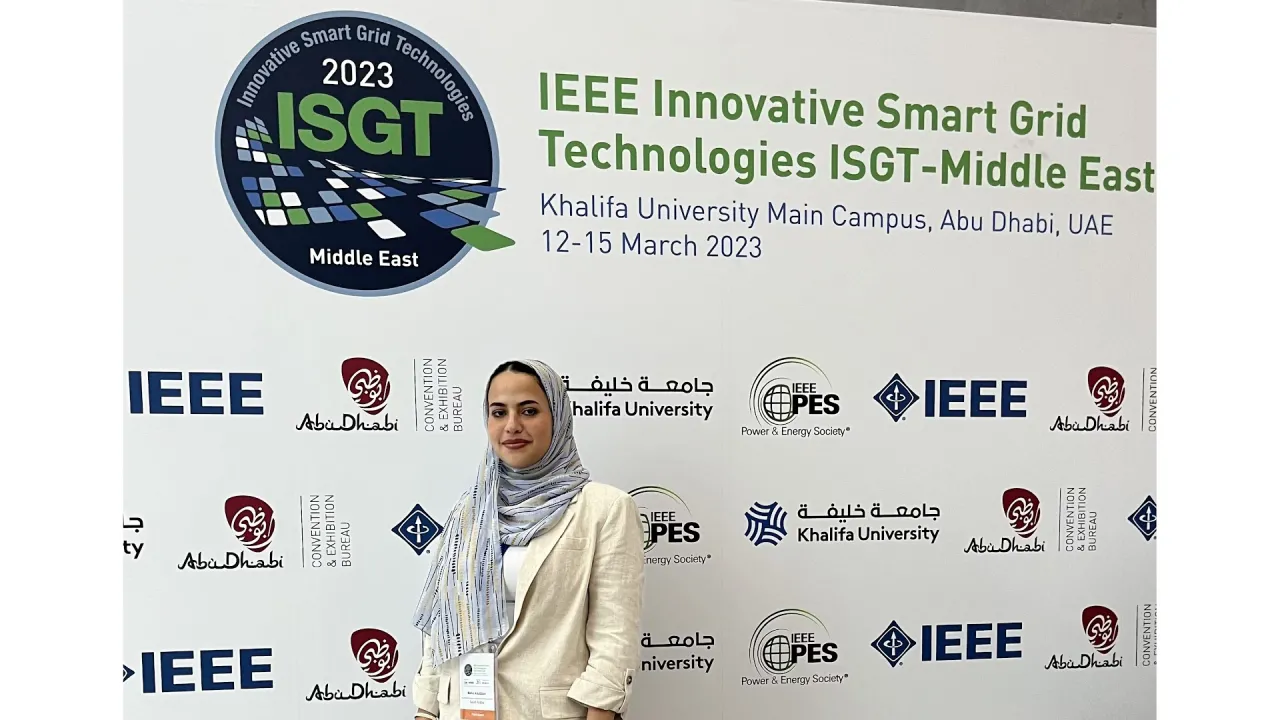
IEEE Innovative Smart Grid Technologies - Middle East 2023
About
Maha Alsabban had the pleasure to attend the IEEE Innovative Smart Grid Technologies - Middle East (ISGT-ME 2023) held on 12-15 March at Khalifa University, Abu Dhabi, UAE. The aim of the IEEE-ISGT-ME Conference is to provide an international forum for experts to promote, share, and discuss innovations and developments in the field of smart grid technologies and applications.
Maha presented her first-author paper entitled “Analysis and Verification of Islanding Detection Techniques for Grid Integrated PV Systems”, as part of her Masters Thesis research work co-authored with Otavio Jose Dezem Bertozzi Junior and her MS advisor Proffessor Shehab Ahmed.
This was a fruitful event to attend and network for potential future collaborations.
Abstract:
The increase in solar energy installation capacity and the versatility of modern power inverters have enabled widespread penetration of distributed generation in modern power systems. Islanding detection techniques allow for fast detection and corrective action in the face of abnormal events. Current standards specify the operational limits for voltage, frequency, and detection time. Grid codes specify the procedures for disconnection to establish safe network maintenance conditions. Passive and active techniques require voltage, current, and frequency measurements and the definition of thresholds for detection. Operational parameters such as load mismatch and quality factors influence the detection capabilities. False-positive triggering due to grid transients can lead to unnecessary disconnection of distributed generation resources. In this paper, we analyze the performance of several islanding detection techniques presented in the literature and propose a modified 9-bus benchmark system to verify the robustness of passive and active methods against false-positive detections upon severe grid-side transients. Simulation results attest to the superiority of active methods and raise awareness of the susceptibility of all investigated techniques to false islanding detection.


